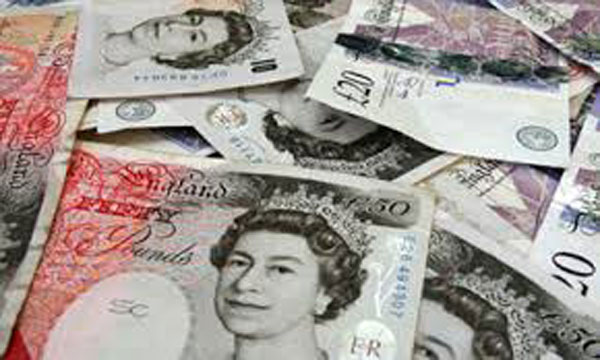Thursday, 17 September 2015 01:20
 LONDON: Sterling rose to its highest in three weeks against the dollar on Wednesday after data showed British wages grew at the fastest rate in over six years, prompting investors to bring forward bets on a first rise in interest rates.
LONDON: Sterling rose to its highest in three weeks against the dollar on Wednesday after data showed British wages grew at the fastest rate in over six years, prompting investors to bring forward bets on a first rise in interest rates.
Sterling climbed half a percent in morning trade after the data before pushing above $ 1.55 for the first time since late August as BoE Governor Mark Carney and other policymakers spoke later in parliament.
Carney banged home his recent message that China-driven market turbulence should not change the bank’s thinking and colleague Kristin Forbes said rates would need to rise soon, with very little slack remaining in the UK economy.
“The blip (this afternoon) did seem to be based on Carney and company’s comments,” a dealer with one international bank in London said.
“The mood today has been positive on sterling, although the pound still is only recovering the ground it has lost over the last fortnight.”
The late gains pushed sterling’s rise above 1 percent on the day.
The pound also strengthened to 72.93 pence per euro , 0.7 percent higher on the day.
The BoE is watching for signs pay is rising as it debates when to raise rates for the first time since 2007. Though wage growth is still weaker than before the financial crisis, it is growing far faster than inflation, upping the spending power of British households.
But with inflation still stuck around zero and oil prices plummeting, investors have pushed back into next year their expectations of when the BoE will raise rates. After Wednesday’s data, they brought those bets forward to around March 2016, from April beforehand.
Traders’ focus is now firmly on a two-day Federal Reserve meeting that concludes on Thursday, the first US rate meeting in almost a decade at which a rise in interest rates is a live issue.
Whenever the Fed moves, it seems unlikely the BoE will precede it.
“The BoE would be badly advised if it stuck its head out too far and gave the impression that it was going to hike key rates earlier or more quickly than the Fed,” Commerzbank FX strategists wrote in a research note.
“This would cause sterling to appreciate, increase downside pressure on inflation and thus make it more difficult to reach the inflation target.”

























